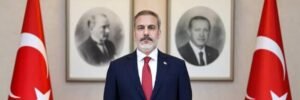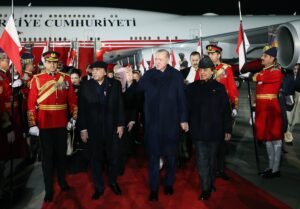Turkey debunks ceasefire violations in Idlib
Turkey’s Defense Military has clarified the prevailing issue over the ceasefire agreement between Russia and Turkey.
The Defense Minister, Hulusi Akar, stated that there had been no violations of the ceasefire in Syria’s Idlib, as part of the agreement with Russia on March 5th, 2020.
“We will continue to be a deterrent force to prevent any violation to the ceasefire. None occurred since ceasefire entered into force,” Hulusi Akar said.
The country’s President, Recep Tayyip Erdogan, added that they would use self-defense rights if its forces or bases in the region were to come under attack.
“Turkey will reserve the right to react with all its might, anywhere in the field in the event of any attack by the regime,” he warned.
However, Russia claimed there had been few shootings in the region.
Civilians and fighters in the region said the main frontlines were calm hours after the ceasefire came into force, causing a lull in the massive air raids by Russian and Syrian jets, and intense Turkish artillery and drone strikes on the Syrian regime’s forces.
“In the first hours, we are witnessing a very tense calm from all warring parties,” said Ibrahim al-Idlibi, an opposition figure in touch with rebel groups on the field.
“We do not have any confidence in the regime and Russia regarding this ceasefire,” Ahmad Qaddour, a 29-year-old who lives in a displacement camp with his wife and two children, said.
Russia and Turkey thumped the ceasefire deal post six hours of discussions in Moscow, to restrain a dispute that has displaced about one million people in just three months in northwest Syria.
“Turkey has started to work on the procedures and principles of the safety corridor around the strategic road,” Akar said.
He also intimated that a Russian military delegation will visit Ankara during the next week to discuss steps to take.
The Russia-backed assault in Idlib by al-Assad’s troops initiated what the United Nations says may be the worst humanitarian crisis yet.
The war has forced millions from their homes and killed several civilians. However, Russia had frequently struck down talks of a refugee crisis. Turkey already hosts 3.6 million Syrian refugees and its army, the second-largest army in the transatlantic NATO alliance, has constantly continued to oppose the Syrian government’s progression.
Analysts and residents have alleged they fear the latest ceasefire would also die out as it does not address the humanitarian crisis or air protection in any detail.
“Any ceasefire arrangement in Idlib, unless it has a no-fly zone dimension, is bound to fail. Deals in the past never de-escalated. They merely froze the crisis until the next
escalation.” said Galip Dalay, IPC-Mercator fellow at the German Institute for International and Security Affairs.
Omer Ozkizilcik, an analyst for the SETA Foundation said that Turkey should be supported by the world for the protection of civilians and that they must also maintain field dominance in the de-facto safe zone.
“It is an important step that helps us achieve some peace, but not a step that has achieved lasting peace,” he added, referring to the ceasefire agreement.







